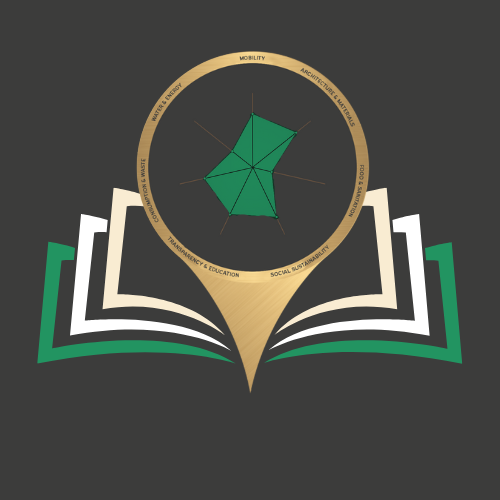Scientific approach
Read here how a scientific approach was maintained throughout the whole process developing the Sustainable Detective booklet and simulation.

Project overview
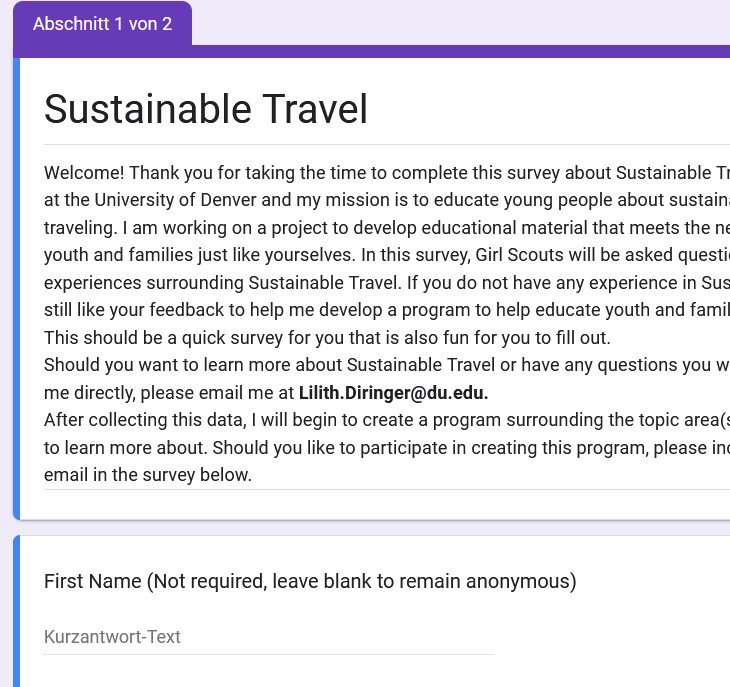
Initial survey: Summer 2023
Purpose: Finding out the needs and interests of the target group
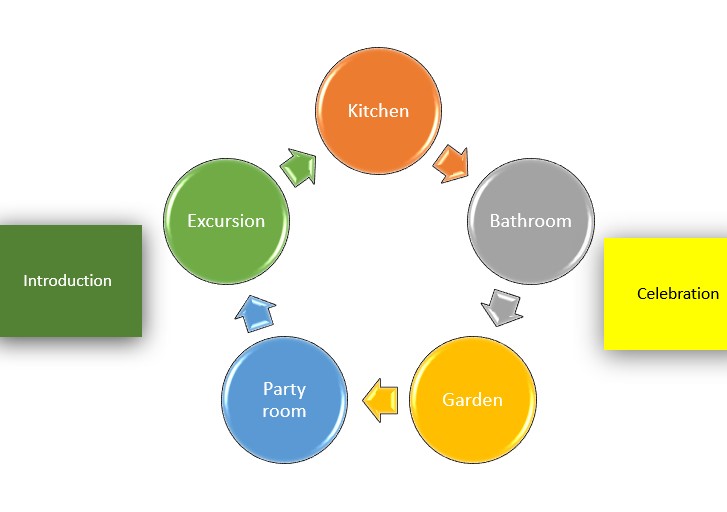
Developing the simulation: April – September 2023
Purpose: actionable materials for the first round of testing the project.
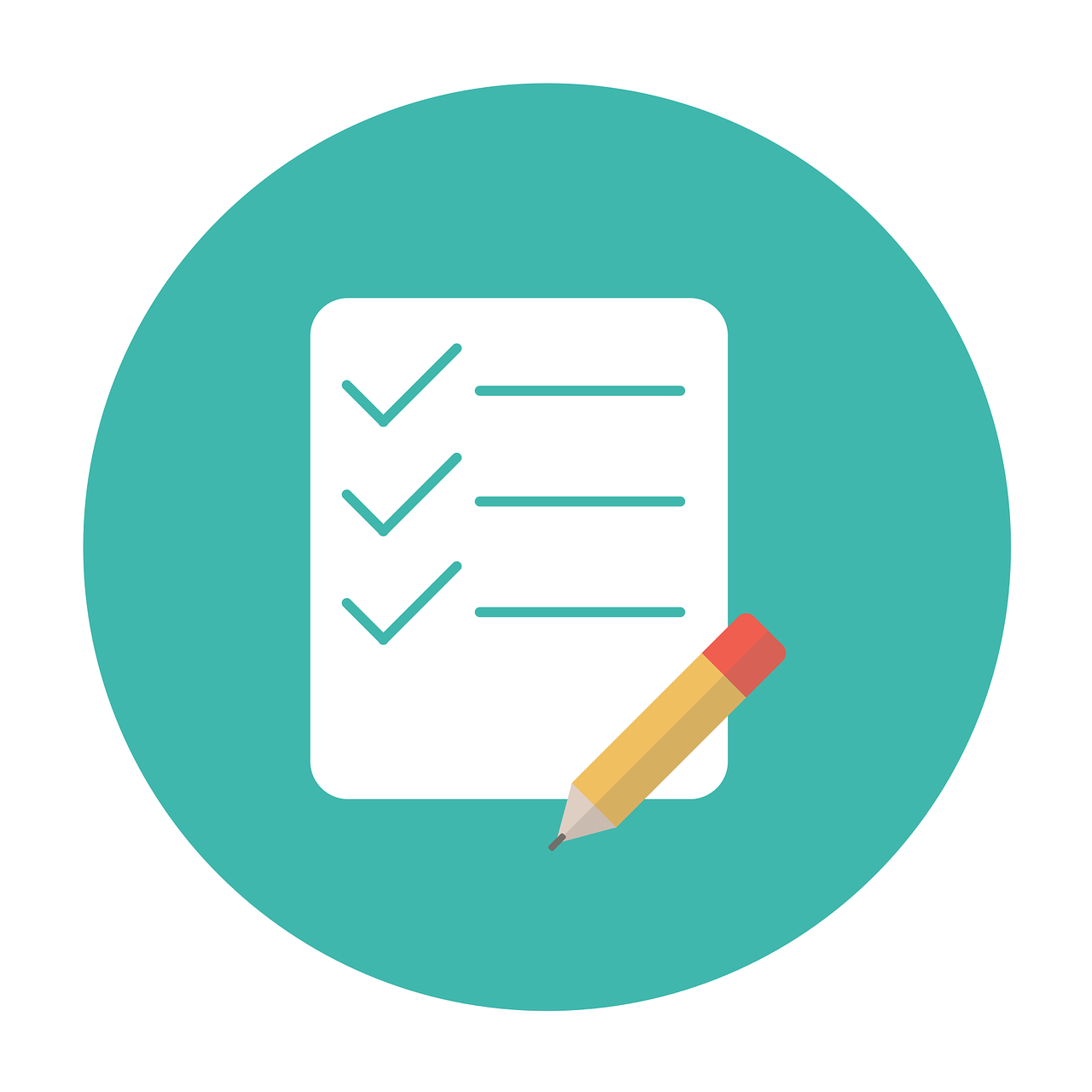
Testing & Evaluation (September – December 2023)
The cooperation with Girl Scouts of Colorado enabled a test round of the simulation. While observing the participating students and implementing their feedback, the material was improved significantly before being published for the general audience.
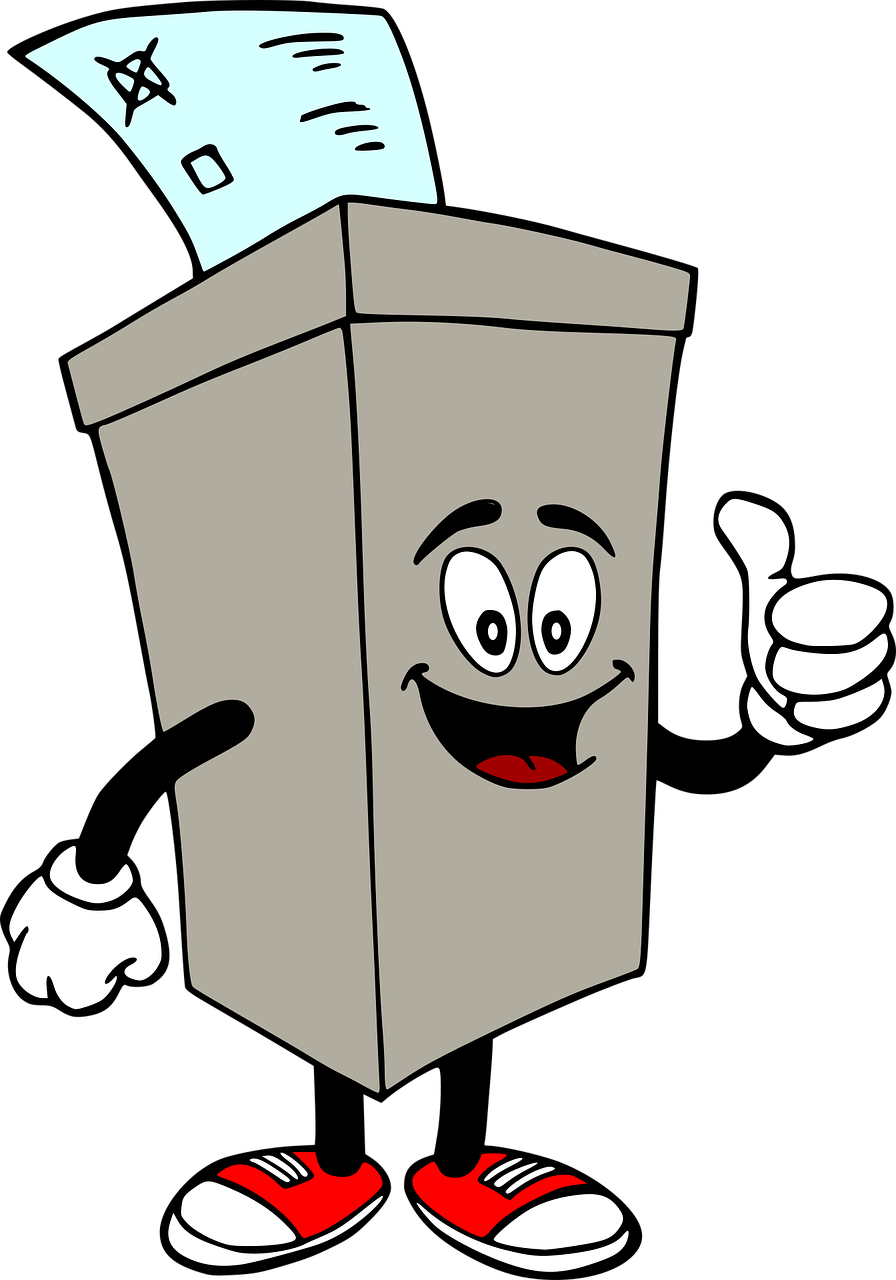
Initial survey
Before starting to design an educational program, we need to identify the needs and requirements. The most important aspect in this regard, especially in a student-centered project, is the opinion of the individuals who will later participate in the final projects. Hence, a survey was designed and distributed among Girl Scouts in Colorado. The survey was open for one month and received 13 participants. The most exciting results were the clear complaint from the participants that they were not involved enough in the process of planning school trips and did not see their voices heard in the field of travel planning. Moreover, they were interested in the topic of sustainable traveling but did not have a lot of connection points to the topic before what became particularly noticeable in comparison to sustainability topics in general.

Developing the simulation
Additional research
In order to develop the simulation, a lot of research was needed. The topics spanned from sustainability in general to sustainable travel practices more specifically. At the same time, psychological effects and principles of early childhood development, education and effective learning had to be understood and taken into account.
Developing the learning material
Combining the results from the preliminary survey with the knowledge acquired through the additional research, the material was developed. This ranked from structuring the various important topics in the field of sustainable travel into different clusters, developing the different tasks and designing the material.
Developing additional instructions for educators
From the beginning the goal was not to conduct a one time event but to develop the material and document the experience in a way that it will be accessible and used by many institutions around the world, benefiting many more than only one cohort. Consequently, manuals and explanations had to be written and designed to accompany the material directly used in the simulation.
Curious?
Testing & Evaluation
Testing the material
In November 2023 Girl Scouts aged 6-14 were part of the first cohort using the developed material. All student participants were observed during the simulation and invited to provide feedback. Furthermore, it was evaluated whether the participants’ expectations were met and how much they liked the experience as well as how much they learned.
Implementing the feedback to improve the simulation
Based on the feedback, the modules were improved and updated. The ultimate goal of the second version, which is now available to be used, is to provide an error-free and effective learning experience for everyone involved.
Getting the word out: promoting the usage of the material to schools and institutions
The tested and improved materials only achieve their effects when being used by as many people as possible. Participants, as well as volunteers, can be active as multiplicators now to convince schools, youth groups, tourist information centers and accommodations to provide the material. The impact will be measured by documenting how many institutions will be reached.
